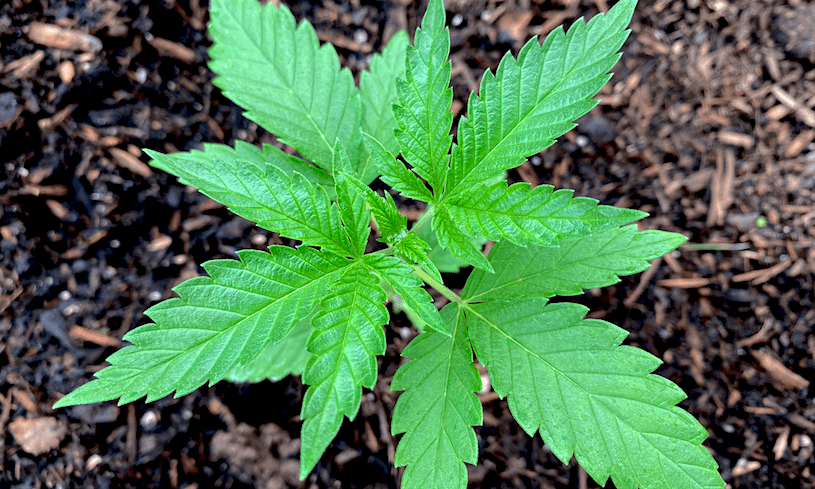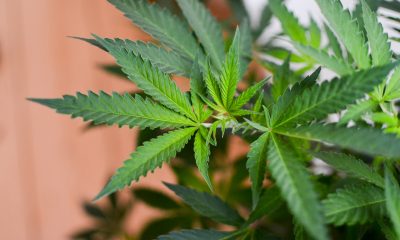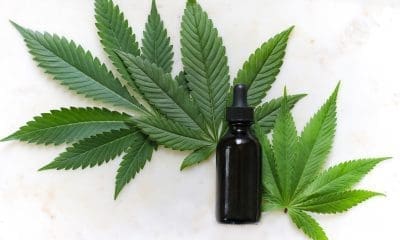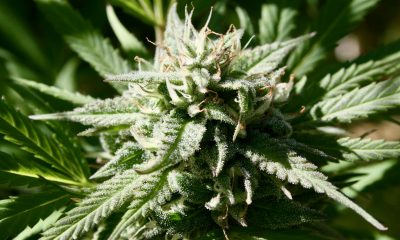Politics
D.C. Mayor Signs Bill To Let Older Patients Get Medical Marijuana Without Doctors And Create 4/20 Cannabis Tax Holiday

The mayor of Washington, D.C. has signed a bill into law that will expand access to the District’s medical marijuana program in a series of ways.
Now, senior citizens will be able to self-certify their own eligibility for cannabis without having to get a recommendation from a doctor. The law also further extends the registration renewal deadline for patients and creates a week-long medical marijuana tax relief “holiday” that coincides with the unofficial cannabis event known as 4/20.
Mayor Muriel Bowser (D) signed the bill two weeks after the D.C. Council voted unanimously in favor of the proposal, which was sponsored by Chairman Phil Mendelson (D).
The emergency legislation is meant to ease logistical burdens for patients in the jurisdiction and incentive people to obtain cannabis from licensed dispensaries, rather than buy their products from gray market vendors who have taken advantage of a workaround related to the District’s policy allowing for marijuana gifting between adults.
The “Medical Marijuana Patient Access Extension Emergency Amendment Act of 2022” is designed to help address rising cannabis costs at licensed dispensaries and “the continuing threat posed by illicit cannabis storefronts and delivery services,” the text of a companion resolution says.
With respect to senior citizens over 65, the law makes it so those individuals will no longer have to go through the hoop of obtaining recommendations and renewals from physicians to continue to access cannabis products based on self-certification for medical need until September 30.
The Alcoholic Beverage Regulation Administration (ABRA) discussed the legislation in a press release on Tuesday, and it also announced that it would be launching a “Senior Week” from February 22-25 to help assist seniors in the self-certification process.
“Senior Week will provide qualifying patients 65 years of age and older with the option to obtain a two-year registration card at no cost prior to the start of the medical cannabis sales tax holiday on April 15,” ABRA Director Fred Moosally said. “We appreciate the steps taken by the D.C. Council to ease the burdens for qualifying patients to access medical cannabis a result of this emergency legislation.”
The will also generally expand on prior emergency legislation that the Council approved at the height of the coronavirus pandemic to extend registration eligibility for the medical cannabis program. Patients under 65 with registrations will continue to be validated through at least September 30.
Finally, the measure creates an incentive to keep people out of illicit or gray markets by creating a “‘4/20 Medical Cannabis Sales Tax Holiday Week’ where medical cannabis patients would not pay the six percent sales tax for the period of Friday, April 15, 2022 through Sunday, April 24, 2022.”
—
Marijuana Moment is already tracking more than 1,000 cannabis, psychedelics and drug policy bills in state legislatures and Congress this year. Patreon supporters pledging at least $25/month get access to our interactive maps, charts and hearing calendar so they don’t miss any developments.
![]()
Learn more about our marijuana bill tracker and become a supporter on Patreon to get access.
—
In 2019, another D.C. lawmaker proposed a separate medical cannabis reform bill meant to ease the registration process for patients. Instead of having to wait several weeks for regulators to process their medical cannabis approvals, patients would simply fill out an application with the city health department and would then automatically qualify to legally purchase marijuana on a provisional basis.
The legislation’s author, at-large Councilmember David Grosso (I), introduced a similar bill in 2017, though that version allowed residents to self-certify as medical marijuana patients—without the need to involve a doctor—by signing an affidavit, and it didn’t have the stipulation that their qualifications could be later rejected.
This latest reform development in D.C. comes as the jurisdictions prepares to implement adult-use cannabis sales, which they’ve been blocked from doing so due to a congressional rider despite D.C. voters approving legalization in 2014.
Lawmakers held a joint hearing in November on a pair of bills to authorize the legal sale of recreational marijuana and significantly expand the existing medical cannabis program in the nation’s capital.
A provision of the bill that could have led to a broad crackdown on the city’s unregulated market for recreational cannabis was removed, much to the relief of advocates who criticized the proposed measure over a component that would have punished businesses that “gift” marijuana in a manner that effectively circumvents the local prohibition on retail cannabis sales.
Marijuana possession and gifting is legal under a voter-approved 2014 initiative—but there currently isn’t a regulated market and people aren’t allowed to accept any form of renumeration for gifting.
The U.S. House passed Fiscal Year 2022 spending legislation that would remove the block on D.C. marijuana sales in July. The Senate has not yet advanced its version of the bill through the Appropriations Committee or on the floor, though panel leaders released a draft measure in October that would similarly let D.C. legalize marijuana commerce.
Democratic congressional leaders are moving to delete the rider despite the fact that President Joe Biden’s budget proposal sought to continue the Republican-led ban.
Rep. Eleanor Holmes Norton (D-DC), who represents the District in Congress, said in November that she is “closer than ever” to removing the blockade on cannabis commerce in her district.
Meanwhile, the mayor said last April that local officials are prepared to move forward with implementing a legal system of recreational marijuana sales in the nation’s capital just as soon as they can get over the final “hurdle” of congressional interference.
Bowser introduced a cannabis commerce bill last February, though her measure was not on the agenda for November’s hearing alongside the cannabis legalization proposal put forward by Mendelson.
Under the chairman’s bill, at least half of marijuana business licensees would issued to social equity applicants, defined as people who faced previous convictions for cannabis-related offenses or have lived in areas with high levels of poverty, unemployment or marijuana arrests for 10 of the past 20 years.
The tax rate for adult-use marijuana products would be set at 13 percent, while medical cannabis would be taxed at six percent.
Thirty percent of tax revenue from cannabis sales would go toward a Cannabis Equity and Opportunity Fund, which would “provide loans, grants and technical assistance to these applicants.
Fifty percent of tax revenue would go to a community reinvestment fund that would provide grants to “organizations addressing issues such as economic development, homeless prevention, support for returning citizens, and civil legal aid in areas with high poverty, unemployment, and gun violence.
The courts would be required to identify and expunge records for people convicted of marijuana offenses made legal under the law. People who are actively incarcerated could have their sentence “modified, vacated, or set aside.
There are also consumer protections written into the legislation, ensuring that people using cannabis in compliance with the law don’t lose benefits, employment or other social services.
Local marijuana activists also proposed an amendment to Mendelson’s legalization bill that would allow small entrepreneurs to sell cannabis at farmers markets. It’s not clear when D.C. lawmakers will convene again to vote on proposed changes and the overall legislation.
The separate medical cannabis bill that the Council considered late last year would allow patients to obtain marijuana from any registered dispensary in the District, instead of just one that they’re registered with under current law. A summary says that dispensaries could also “operate safe use treatment facilities as well as offer tastings and demonstrations and/or classes with the proper endorsements” under the proposal.
Further, delivery and curbside pickup would be permitted. The cap on the number of plants that a cultivation center can grow would be eliminated, and the number of dispensaries permitted in the District would be increased. Additionally, the bill seeks to remove “certain prohibitions against returning citizens ability to take part in the medical marijuana industry.”
Last March, a federal oversight agency determined that the congressional rider blocking marijuana sales in D.C. does not preclude local officials from taking procedural steps to prepare for the eventual reform, such as holding hearings, even if they cannot yet enact it with the blockade pending.
Separately, another group of activists announced an effort to pressure local lawmakers enact broad drug decriminalization, with a focus on promoting harm reduction programs, in the nation’s capital. A poll released last year found that voters are strongly in favor of proposals.
New York Senate Approves Marijuana Licensing And Equity Bill, With Assembly Vote Imminent














